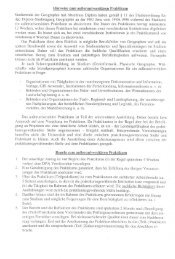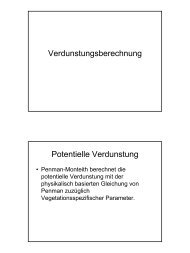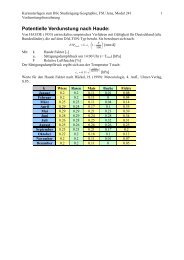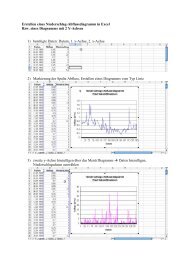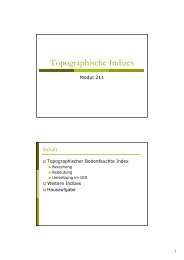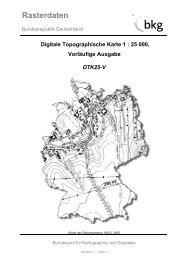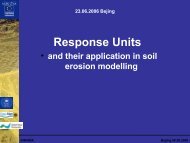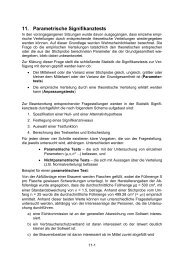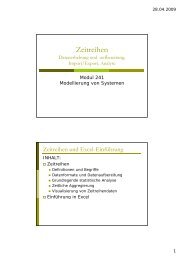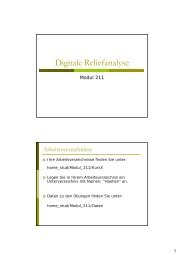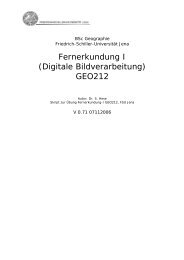IRBM Training Course Design
IRBM Training Course Design
IRBM Training Course Design
Create successful ePaper yourself
Turn your PDF publications into a flip-book with our unique Google optimized e-Paper software.
<strong>IRBM</strong> <strong>Training</strong> <strong>Course</strong> <strong>Design</strong><br />
Topic:<br />
<strong>IRBM</strong> Practices and Lessons Learned in China<br />
Trainers:<br />
YU Xiubo, Ph. D. Associate Professor, Institute of Geographical Sciences and Natural<br />
Resources Research, Chinese Academy of Sciences, yuxb@igsnrr.ac.cn<br />
LI Lifeng, Ph. D, Freshwater Programme Director, WWF China, lfli@wwfchina.org<br />
Time:<br />
3.5 hours on June 12<br />
Rational<br />
Efficient Integrated River Basin Management (<strong>IRBM</strong>) requires an holistic approach,<br />
which is encompasses “environmentally-sound water management; food security<br />
especially for the poor; private sector involvement; reduction of subsides;<br />
decentralization of decision-making to the lowest appropriate administrative level;<br />
user participation in service; institutional reform and regulatory framework; and cost<br />
recovery and pricing. ” (European Commission 1999).<br />
Background Information of the Lectures<br />
Jointly funded by CCICED (China Council of International Cooperation on<br />
Environment and Development) and WWF, the Task Force on <strong>IRBM</strong> was officially<br />
launched in March 2003. Consisting of 13 Chinese and international experts, the Task<br />
Force is co-chaired by Prof. Chen Yiyu, Member of the Standing Committee of the<br />
Nation People’s Congress and President of the National Natural Science Foundation<br />
of China, and Prof. A. J. M. Smits, Professor of the University of Nijmegen, the<br />
Netherlands. During 20 mouths since its inception, the Task Force, by pooling<br />
international resources, has successfully completed its study mission. On October 30,<br />
2004, at the 3 rd Annual General Meeting of the 3 rd Phase of CCICED submitted a<br />
report entitled Promoting Integrated River Basin Management and Restoring China’s<br />
Living Rivers, which was deemed as a valuable policy recommendation for the<br />
Chinese government.<br />
In 1999, WWF launched Partnership for Living Yangtze (Action Network). Based<br />
upon it, it launched Yangtze Focal Programme (Partnership for Wetlands-phase I) and<br />
HSBC Yangtze Programme(Web of Life-phase I) in 2002, and Yangtze Focal<br />
Program(Partnership for Wetlands-phase II) in July 2005. Since 1999, WWF has been<br />
working on freshwater conservation and <strong>IRBM</strong> in Yangtze River for 8 years.<br />
Therefore, WWF has won a high reputation in wetland surveying, monitoring,<br />
research, demonstration and education in wetlands conservation in Central Yangtze, of
which no other institutions or organizations can be comparable.<br />
Aims and Objectives<br />
The course element aims at:<br />
Getting familiar with approaches used to promote <strong>IRBM</strong> at national and<br />
basin-wide level, especially on policy advocacy and field demonstration.<br />
After completing this course element, participants will be able to:<br />
Define the partners in <strong>IRBM</strong><br />
Understand partnership building approaches to promote <strong>IRBM</strong> at national and<br />
basin-wide level<br />
Share lessons learned in promoting <strong>IRBM</strong> practice in China and Yangtze River<br />
Programme:<br />
Lecture 1: How scientists to promote <strong>IRBM</strong> in China – a case of CCICED Task Force<br />
on Integrated River Basin Management<br />
By YU Xiubo<br />
Lecture 2: How NGO to facilitate wetland conservation and <strong>IRBM</strong> - a case of<br />
WWF China in Central Yangtze<br />
By LI Lifeng<br />
Break (30 minutes)<br />
Group Discussion and Presentation<br />
Topic:What tools can be used in partnership building for <strong>IRBM</strong>?<br />
By participants with 4 groups with facilitation of trainers<br />
Discussion (40 minutes)<br />
Presentation (5 minutes each group)



